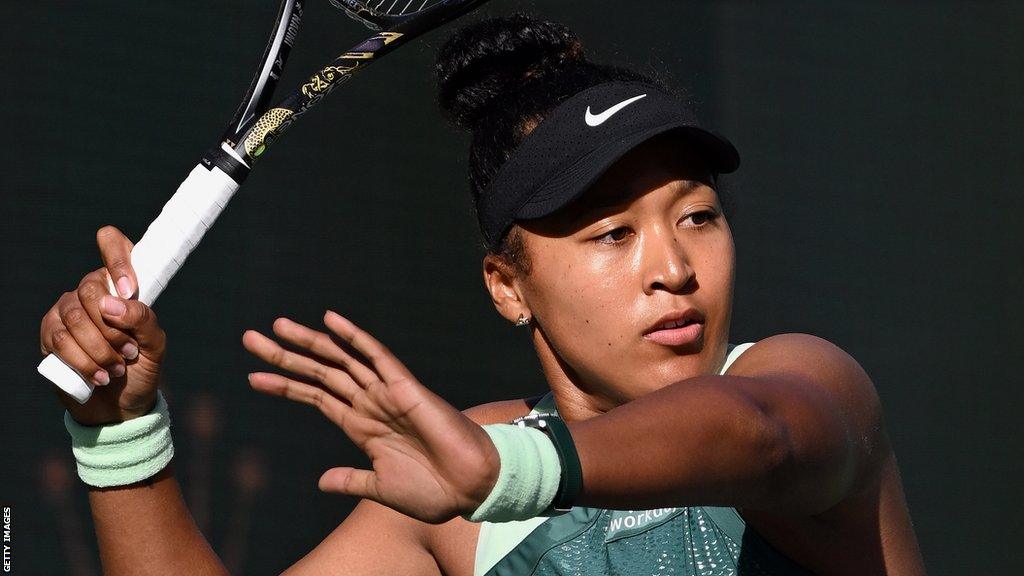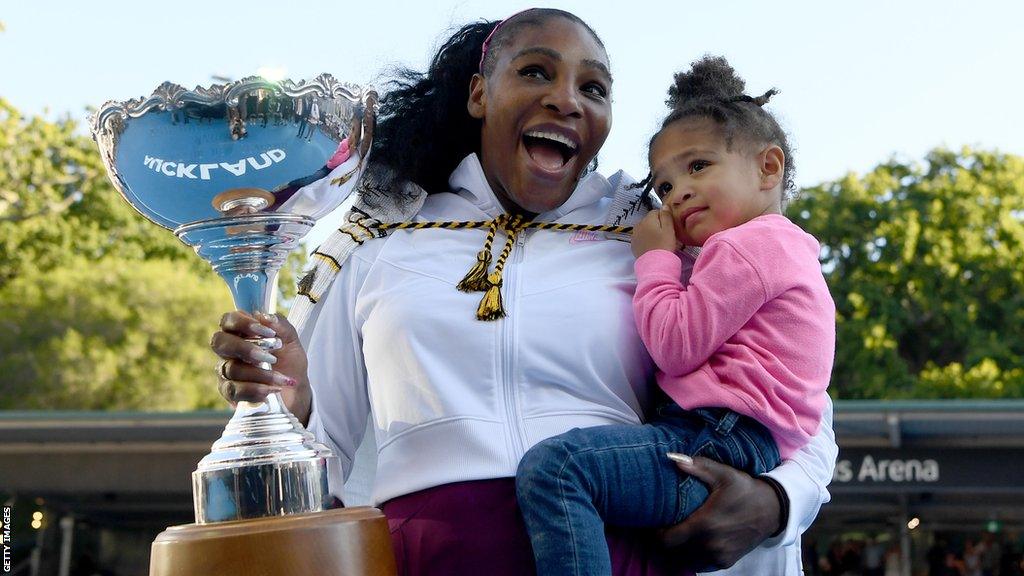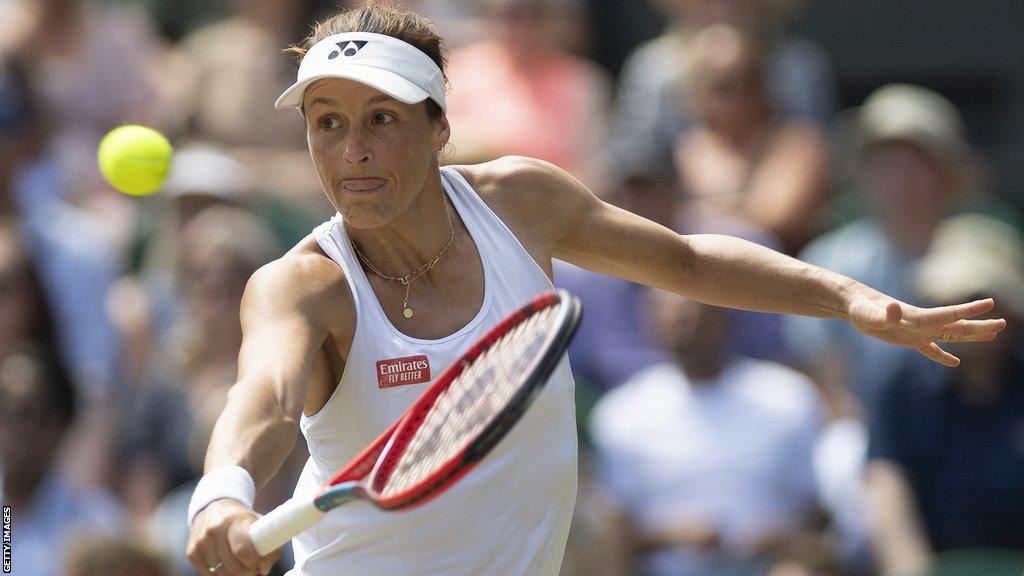Victoria Azarenka and Naomi Osaka on why introducing maternity pay on WTA Tour would be 'life-changing'
- Published

Four-time Grand Slam champion Naomi Osaka returned to tennis in January, six months after giving birth to her daughter
It is now 51 years since Margaret Court won three Grand Slams in a single year as a mother.
Evonne Goolagong Cawley and Kim Clijsters also won Grand Slam titles after having children, and Serena Williams came agonisingly close, falling in four finals after becoming mother to Olympia.
Returning to the tour after maternity leave has become easier since the WTA changed the rules before the 2019 season.
New mothers are now be able to use their previous ranking to enter 12 tournaments over a three-year period from the birth of their child.
But former world number one Victoria Azarenka, who gave birth to son Leo in 2016, believes the WTA's next step should be to introduce maternity pay.
"There's a lot more that has to change and I hope that we are on the right track to do it," Azarenka told BBC Sport in Brisbane earlier this year.
"I think the important part is to change the financial part of maternity leave. I think that would be a huge win for women in general, so I hope we find the resources to be able to do that. I think that would be incredible.
"I have, I'm guessing, more financial security than some players who may be outside the top 100, and maybe have the same desires and ambitions to have a child and continue to do their job."
Brisbane was also the venue at which Naomi Osaka chose to return to the tour, having given birth to daughter Shai six months previously.
The four-time Grand Slam champion is fully behind Azarenka.
"I think it would definitely be life-changing and I feel like having a kid shouldn't feel like a punishment," she said.
"For most female athletes, I think there's a discussion that your career's going to change dramatically or going to finish because you have a kid, so just appreciating them more and giving more options is something that is very necessary."
There has been no update from the WTA since chief executive Steve Simon wrote "maternity coverage is a topic scheduled for review" in a letter to leading players following meetings at last year's WTA Finals.

Serena Williams reached four Grand Slam finals after giving birth to daughter Olympia in 2017
Since 2019, returning mothers with a special ranking high enough to be seeded have also had a guarantee they will not face a seeded player in the opening round of their first eight tournaments.
A seeding allows tournaments to ensure the world's best players do not meet in the early stages of competitions and instead play lower-ranked players in the opening rounds.
Williams has made it clear, external she felt penalised for having a baby when she returned to the tour in 2018. At that year's French Open - before the rule change - Williams had a special ranking of one but an actual ranking of 453, and so was not seeded.
Germany's Tatjana Maria, a semi-finalist at Wimbledon 2022, was one of seven mothers in the main draw at this year's Indian Wells.
The world number 46 travels with her husband and coach Charles and their daughters Charlotte, aged 10, and Cecilia, who will be three next month.
She did not have significant career earnings to live off when she took her first break from the tour aged 25 and believes maternity pay is long overdue.
"I think it's completely correct to do this, because other jobs you have worldwide it's the same rule - when you get pregnant, you get paid - and I think why not in tennis?" Maria said.
"There are more mums on tour and we are coming into a generation where you can play much longer than before, and it will be more in the future. It's something the WTA has to see, that we are more mums on tour, and change it."
Maria would also like to see creche facilities becoming a norm on the tour. The provision at the four Grand Slams is very good - but on the WTA Tour, only tournaments in Stuttgart and Madrid offer day care, although players are entitled to an extra pass for a childcare provider.
"Due to varying regulations governing childcare across our tournament host countries, we are unable to institute a universal childcare policy, though the WTA encourages tournaments to offer these services on an individual basis, and several of them do," the WTA said in a statement.
"The WTA is proud to support the mothers on our Tour and we remain committed to providing them with resources to help balance parenthood and the demands of competing at the highest level.
"We are focused on both the health and performance of players while also empowering players. As a result, the WTA provides each player with an athletic care manager to oversee their safety, health, and performance during pregnancy and postpartum care."

Tatjana Maria reached the Wimbledon semi-finals in 2022, one year after giving birth to her second child